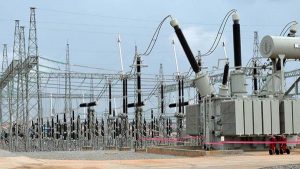Oil prices jump 2-month high amid renewed hopes of demand

Crude oil prices jumped to a two-month high on Monday, reflecting output cuts and investors betting that looser lockdowns will boost demand for fuel.
For instance, West Texas Intermediate, the US benchmark, was trading 7.1 per cent higher at $31.80 a barrel.
Brent, the international benchmark was up 5.1 per cent at $34.40. Oil supply cuts are paying off Naeem Aslam, chief market analyst at Avatrade, said it was turning out to be a “remarkable day” for both WTI and Brent.
“The global economy is reopening and the oil glut has eased off,” he said. The combination of global production curbs and recovery expectations has been driving oil prices higher, Jeffrey Halley, OANDA’s senior market analyst for the Asia Pacific, said in a note on Friday.
The Organisation of the Petroleum Exporting Countries (OPEC) and its allies reached a deal to cut oil production by 9.7 million barrels per day in May and June to shore up the price of the commodity. Prices tanked earlier this year as the coronavirus pandemic weighed on economic activity and Saudi Arabia and Russia waged a bitter oil-price war.
Energy Intelligence reported on Monday that OPEC may extend the cuts to the rest of the year, citing an unnamed OPEC delegate.
Moreover, several countries including Italy, Iran, Spain, Israel, and Germany that previously enforced strict lockdowns on their populations are in the process of easing them.
However, the risk of a second wave of infections resulting in a fresh set of restrictions remains. Several US states are also lifting lockdowns. Georgia, South Carolina, and Montana had eased restriction as of May 15 and others including Texas, Maine and Illinois have partially reopened.
The combination of supply cuts and greater hopes for a demand recovery, among other factors, are boosting oil prices. Both WTI and Brent outperformed on Monday due to “China stimulus measures, decreasing supply and peak virus hopes,” Halley said.
The WTI contract for delivery in May turned negative for the first time in history on April 20 as coronavirus tanked demand for the fuel, and due to an extreme shortage of storage facilities, particularly at a key hub in Cushing, Oklahoma.
However, a repeat is unlikely when June contracts expire as market forces are pushing prices higher, Halley said.









